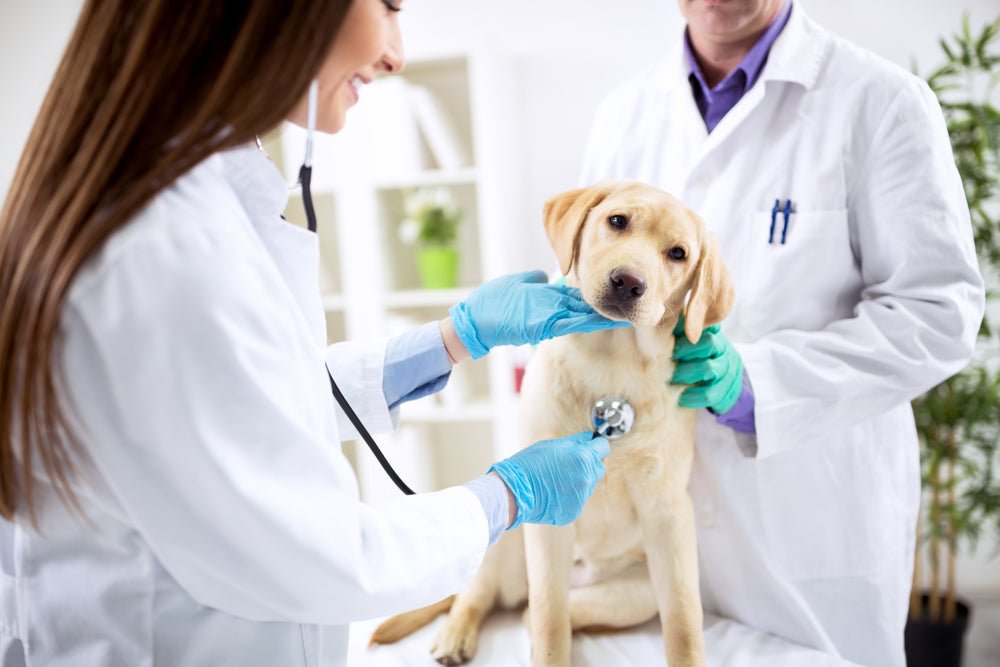I recently stumbled upon a great video of a woman helping her young, large-breed dog acclimate to vet visits. She had clearly spent a good amount of training time teaching the dog to be calm and accepting of handling.
She also did an excellent job of advocating for her dog during the visit spending time educating the vet staff about what she'd like them to do. During the visit, the dog got his vaccination and you could see that there was no stress for anyone in the room, including the dog. What a wonderful scenario!
When dogs are uncomfortable or stressed, they will try to either fight or flee the scene. When they can't flee due to the necessity of the vet visit, the fight is on. Some dogs will react aggressively while others will just struggle and try to get away. Either scenario is a poor one for all involved: dog, vet, vet techs and owner.
The good news, is that with a little bit of prep work, you can alleviate some or even all of the stress on everyone, even if you have a dog who already dislikes vet visits.
Make a list of all of the handling skills that you will need to work on with your dog starting with the most obvious:
- Mouth - can you examine your dog's mouth, move their lips, open their jaws
- Eyes - can you look into the eyes, spread the eyelids. Will they hold still to allow administration of medications
- Ears - can you lift them, clean them, can the vet look inside of them with an instrument
- Tail - can it be lifted to take your dog's temperature
- Stomach - can you palpate without them panicking
Every dog will be slightly different in their requirements. For example, if you have a breed of dog that has a wrinkled face, they'll need to become accustomed to you cleaning those wrinkles.
It's important to plan ahead and help your dog be ready for examinations. Here is a video we prepared to help you with just that!
Once you've done your prep work at home, you can continue to make things positive for the dog while they are at the vet. Check out baby Bee-Line on her first vet visit:
Once you've done the initial training with your dog, occasional reminder sessions will help keep your dog understanding what their job is. It's worth the effort to ensure that your dog, yourself and the veterinary staff can relax and concentrate of improving matters of health.
As always, Happy Training!
|
|
Hi! I'm Shannon and I joined the McCann team in 1999 while training Quincey, my wonderful and spirited Rottweiler, to have good listening skills. I'm the Director of Online Training and Content for McCann Professional Dog Trainers and I enjoy writing about dogs and dog training for the McCann blog. I currently share my life with 2 Tollers (Reggie & Ned) and I love helping people develop the best possible relationship with their 4-legged family members. |


